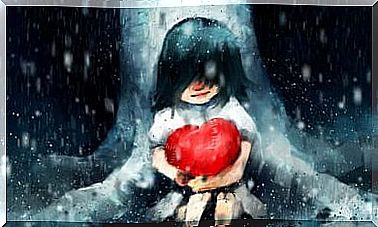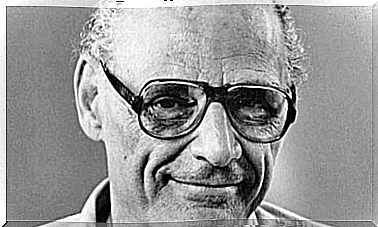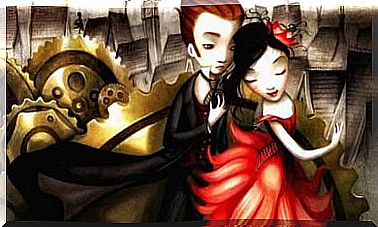Tiredness Can Be A Sign Of Hidden Sadness
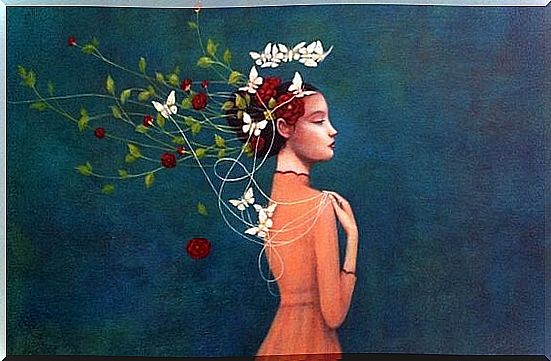
Sometimes we feel out of tune, enveloped in a daily life of grays and whites, empty and meaningless. When we are asked what is going on, we say we are tired, just that and nothing else. However, tiredness can be a sign of sadness, that gray friend that settles, without permission, in the mind and heart to spread apathy and withdrawal.
Let’s face it, we’ve all been through this same situation at some point. When tiredness is added to the sticky, apathetic and intense emotion that is sadness, people do not hesitate to turn to “Doctor Google” in search of a possible diagnosis. Immediately appear terms such as “depression”, “anemia”, “hypothyroidism”, etc.
When sadness settles in us, we immediately conceive of it as something wrong, as something pathological that we want to get rid of immediately, as someone who removes the dust or dirt from our clothes. We don’t like it and we want to defend ourselves against it without stopping even to understand its anatomy, to delve into its melancholy recesses, to acquire a much deeper learning about ourselves.
In fact, we sometimes forget that sadness is not a disorder, that sadness and depression are not the same thing. As long as this emotion doesn’t last long and doesn’t continuously interfere with our lifestyle, it brings a good opportunity, however paradoxical it may seem, to progress to grow as a person.
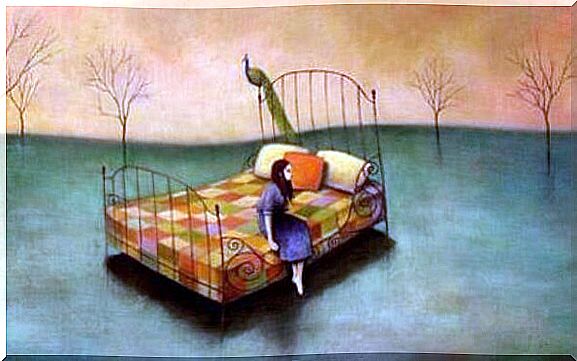
We are always tired, but tiredness can be a sign of sadness
Sometimes we go through times like that, times when we go to bed tired and get up in the same way. We can go to the doctor, and yet the tests will tell us that there is no hormonal imbalance, no iron deficit, or any other pathology of organic origin. It is quite possible that the health professional will point out to us that it may be the change of season, a small dysthymia typical of autumn or spring. Something very light and can be resolved with punctual and time-limited pharmacological treatment.
There are emotional states that in no way require the help of the pharmacopoeia to resolve. However, when feeling its psychosomatic impact on our body, it is normal to get scared and make the mistake of treating the symptom without first addressing the problem’s focus: sadness.
Why do we feel tired when we are sad?
The brain mechanisms that govern our emotional states are quite different from each other. While joy or effusiveness originates a series of connections and hyperactivity in our brain cells, sadness is much more austere and prefers to save on resources. However, she does it for a very specific purpose. Let’s look at it in more detail.
- Sadness generates a very significant decrease in energy in our body. In addition, we feel the need to avoid social relationships, they bother us, the sound can even cause pain, the environment around us bothers us and we prefer our lonely corner.
- It’s interesting to know, furthermore, that the structure that takes over in our brain is the amygdala, but beware, only a part of it takes over, specifically the right part.
- It is this small brain region that induces this feeling of withdrawal, inactivity, physical tiredness… All this energy drop has an objective in itself: to encourage introspection.
At the same time, states of sadness reduce our ability to pay attention to all external stimuli around us. This happens for a very obvious reason: the brain tries to tell us that it is time to stop and think, to reflect on certain aspects of our lives.
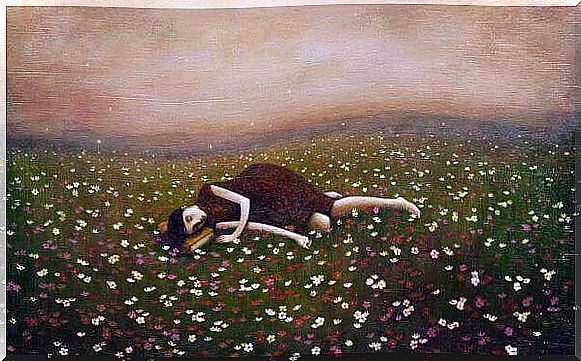
Things We Should Learn About Occasional States Associated With Sadness
Occasional sadness, the one that hugs us for a few days and makes us feel tired, disconnected from our reality and feel unhappy, is something that we cannot neglect. Treating the symptoms, treating our tiredness with vitamins or our headache with painkillers is useless if we don’t get to the real root of the problem.
If we don’t do that, if we don’t stop and take care of what bothers or worries us, it’s possible that this ball will get bigger and the sadness more extensive. Therefore, it may be useful to reflect on a number of dimensions about this emotion that will undoubtedly clarify some small details.
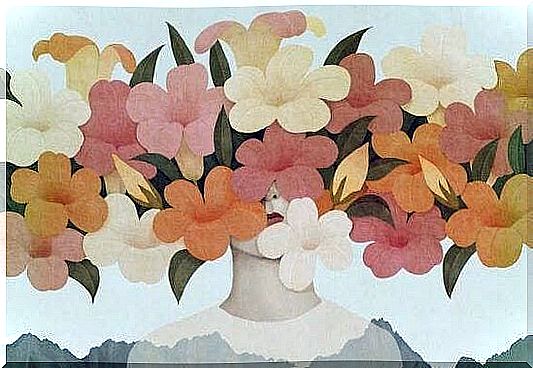
Three “virtues” about sadness that we must understand
- Sadness is a warning. We have already pointed out before: the loss of energy, the fact of being tired and lacking the mental resources to develop on a daily basis are just symptoms of an evident problem that we must solve.
- Sadness as a result of letting go. Sometimes, our own brain already warns us of something that our conscious mind does not assume: “it’s time to leave this relationship”, “this goal you have in mind will not come true”, “you are not happy in this work, you’re burning: maybe you should go out”…
- Sadness as a conservation instinct. This fact is curious and we cannot forget it: sometimes sadness leads us to “hibernate”, to temporarily disconnect from our reality to conserve resources… It is common when, for example, we suffer a disappointment, so it will always be more healthy to reflect for a few days in intimate retreat in order to protect our self-esteem, our integrity…
To conclude, as we can see, there are times in our lives when tiredness has few physical reasons and many emotional ones. Far from seeing sadness as a disorder to be treated, we must see it as an internal voice that we must listen to, as a valuable and useful emotion that is essential for human growth.
